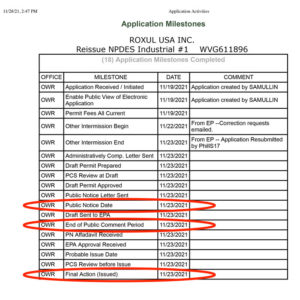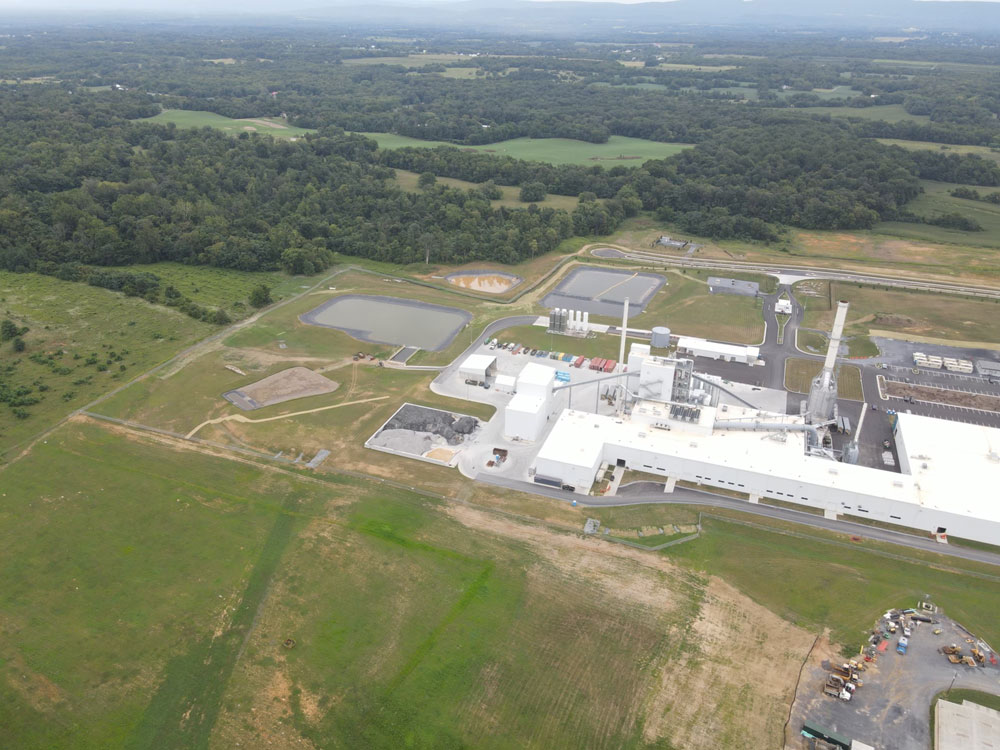New legal filing seeks to toss Rockwool’s illegal water permit registration, replace with a stronger permit in compliance with law
In November, the Foundation discovered that Rockwool had applied for a reissuance of its National Pollutant Discharge Elimination System (NPDES) Stormwater Operational Permit (Multi-Sector). The West Virginia Department of Environmental Protection (DEP) approved Rockwool’s November 19, 2021 application in two business days and with no public comment. On December 22, 2021, the Foundation responded by filing an appeal of the company’s deficient and untimely-filed operational stormwater permit registration.
Documents

What happened?
On Friday, November 19, 2021, Rockwool applied for a reissuance of its National Pollutant Discharge Elimination System (NPDES) Stormwater Operational Permit (Multi-sector). Shockingly, the permit application was approved by WVDEP on Tuesday, November 23, 2021. All this was done without apparent public notice and opportunity for public comment.
Why is this important?
The NPDES Operational Stormwater Permit is critical to protecting the water resources of our region from the potential impacts of Rockwool’s presence. It is imperative that Rockwool be required to have an adequate and appropriate stormwater handling system with adequate and appropriate monitoring such that the water resources of the regions are protected from its industrial pollutants. This permit is the regulatory vehicle to ensure that is done. The Foundation is working hard to make this happen.
Update on the Stay Hearing
At the January 13 EQB hearing focused on our concern that Rockwool’s permit application appears to request permission to discharge more than just stormwater, with two different locations on the application indicating that Rockwool had a new discharge. Since Rockwool failed to answer the application’s questions regarding effluent characteristics, it was impossible to know exactly what the new discharge would be. Instead, Rockwool indicated in its application that the new discharge could be “sewage, industrial waste, other wastes or effluent therefrom.” So, to prevent the irreparable harm that would occur should the permit have the legal effect of allowing industrial or sewage wastes, we sought an immediate stay of those specific parts of the permit application in order to block Rockwool from discharging anything but stormwater.
Importantly, during the hearing Rockwool voluntarily agreed that it would not discharge anything other than stormwater and that if it was found to be doing so that it would not attempt to use the disclosures in its application as a shield from liability. Following Rockwool’s statements the EQB denied the stay we had requested—but Rockwool’s own statements are now part of an official court proceeding and should have the same effect as if EQB had granted the stay. Having achieved that much needed legal protection for the water resources of the region, the Foundation’s legal team is moving forward to prepare for discovery.

